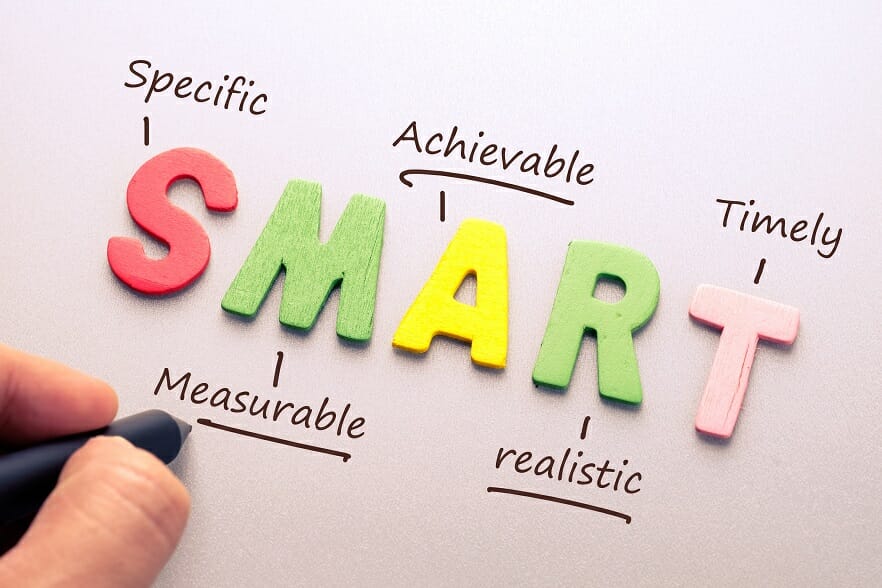Blog Material Written By: Corey Edmonds, MPH, Community Health Worker
Changing any behavior is never an easy feat. After all, humans are creatures of habit. We find a routine that is comfortable and we stick to it. What could be better than feeling safe, secure, and not having to worry about anything unknown or unfamiliar? Whether we like it or not, we all are forced to adapt and change our routines and behaviors at various times throughout our lives, usually with the aim of improving our processes, productivity, or our quality of life. Whether it be in improving our finances, taking the next big step in life, losing weight, or ditching a sedentary lifestyle for one of increased physical activity, we all use goal-setting to aid us in changing our behaviors. However, we often fail to set goals that are appropriate given the various details of our surrounding environment and our own inherent capabilities.
In 1981, an author by the name of George T. Doran birthed a goal-setting concept known as SMART in an issue of the magazine Management Review. SMART has been versioned to mean different things to different people, mainly based on differences in profession or topic of choice. Most generally, S.M.A.R.T. is an acronym that stands for Specific, Measurable, Attainable, Relevant/Realistic and Time-Bound or Time-Based:
Utilizing the SMART framework in setting goals helps to make sure that one is not setting their aim too high in what they wish to accomplish and prevents them from setting themselves up for imminent failure before they even get started. In addition to utilizing the SMART goal setting framework, it also helps to post small and subtle reminders of your goals in various places that will catch your attention, most effectively in areas that may find you in your weakest moments. If dieting and weight loss is your goal, strategically place reminders of your goals on or next to the refrigerator or pantry to help keep you from getting off track. If being more physically active is your goal, place reminders next to the couch or TV to try to defer your attention towards accomplishing your goal. (Sticky notes work great!) Literally, no matter what the nature of your goals is, the SMART framework can help to ensure that you have a greater chance of accomplishing everything that you set out to accomplish.
The following video gives a very simple and descriptive breakdown of how to utilize the SMART goal setting framework effectively in your everyday life:
This video is just to get you going, some playful motivation, brought to you by Kid President himself. Because everyone needs a Pep Talk!
Sources:

